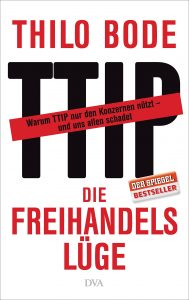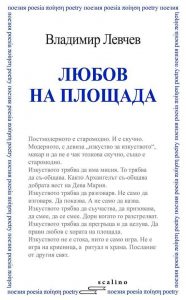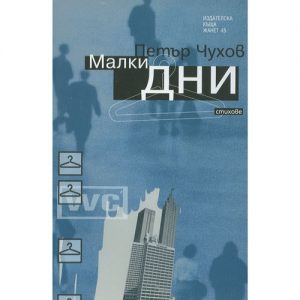Do you know what TTIP stands for? It is the abbreviation of Transatlantic Trade and Investment Partnership, the planned Free Trade Agreement between the USA and the European Union. (A similar agreement between Canada and the EU is also being negotiated.) It stands for an agreement whose consequences will affect each and everyone of us, even when he or she doesn’t live in the area which will be directly influenced by this treaty. It is therefore important to be able to form an opinion of your own on this topic.
Before I start my review of Thilo Bode’s highly interesting book Die Freihandelslüge (The Free Trade Lie), I should maybe mention that I am in principle an advocate of free trade. Free trade can – if properly applied – increase the welfare of all, it enhances the international division of labor and the optimal use of scarce resources when each country is producing those things in which it is best and has comparative advantages – but frequently those who talk about free trade have something else in mind.
Bode, a development and trade economist by profession (so am I) gives an interesting example. In his first job as a development economist, he worked in a project in Tunisia, a country with scarce water resources. Tunisia is a very suitable place for producing and exporting olive oil, and importing wheat, a cereal that needs a lot of water to grow. This kind of division of labor makes sense: why should a country like Tunisia produce its own wheat and use the little water they have for something that can be much more efficiently grown abroad?
Unfortunately, the EU was and is subsidizing the olive oil production in the EU to an extent that made it for a long time almost impossible for Tunisia to export to the EU – its olive oil was not competitive with the highly subsidized olive oil from the EU. On the other hand, development projects financed by the EU stimulated the growing of wheat in Tunisia, sheer madness! – I could easily add similar examples from my own professional experience in various countries.
This example is typical. “Free” trade means practically in many cases that potential exporters from outside the EU are prevented from entering the market – this situation will be even worse with TTIP since this new agreement will for sure increase the bilateral trade between the two partners at the expense of third countries, particularly the developing countries.
When we listen to those lobbyists that try to convince the public that TTIP is a good thing, the first they usually tell us is that TTIP will increase the GDP, the employment and the wealth of us all. Great – but is it also true? Bode has some convincing facts here that makes us see these claims in a very different light.
The Centre for Economic Policy Research (CEPR) in London that was hired by the EU to make a study on the probable positive effects of TTIP on growth and employment calculates the positive effect for the GDP in the EU until 2027 to be between 0.39 and 0.48% – not per year, but for the whole period. A very meagre result – and this is of all the studies the one with the highest estimated growth! An additional working day per year or the introduction of the metric system in the US would have in one year a much bigger growth effect than TTIP in together fifteen years! If we consider additionally that the study suggests somehow very inconsistently that people who lose their jobs as a result of the increased competition will find immediately and without additional training costs a new job (in the real world these training costs are considerable and are paid by the society, i.e. they have to be deducted from the calculated growth), we begin to understand that TTIP will be under no circumstances the big job and wealth machine as which the pro TTIP faction is trying to sell it to the public.
The negotiations of TTIP are top secret. Even most elected representatives in both the American Parliament Houses and the European Parliament have no access to information regarding the concrete situation of the negotiations. Only a handful of EP members have access to at least some basic documents which they can access only as if they are in a high security tract, not in an institution that represents the European people. For an international treaty that affects not only trade, but also consumer rights, health, industrial and intellectual property rights, the rights of trade unions, and many other sectors, this is for my understanding a big scandal. Access to information is denied to us and our elected representatives, but lobbyists of the big business have free access to the negotiations and are even part of it! It doesn’t come as a surprise that the meeting agendas of those who are a part of the negotiation teams consist almost exclusively of representatives of the big industrial corporations and multinationals.
Bode gives in his book an overview that is really shocking. Many of his examples concern the food sector. But TTIP will not only in all probability decrease the quality standard in the food sector, it will affect all of us also in other areas. I want to give just two more examples: the production of and trade with chemicals, and the impact of the introduction of arbitrage courts for foreign investment protection.
Many chemicals have the potential to damage the health. The US and the EU have two diametrically opposed approaches to handle this potential danger. The EU regulation REACH that defines the conditions under which chemicals may be brought in use and circulation in the European Union is based on the precautionary principle. This approach to risk management states that if an action or policy has a suspected risk of causing harm to the public or to the environment, in the absence of scientific consensus that the action or policy is not harmful, the burden of proof that it is not harmful falls on those taking an action, i.e. in this case the producers of these chemicals – and not the consumers or persons that may be harmed.
In the United States, the approach regarding risk management is diametrically opposed. Here the producers don’t need to take precautionary measures, and the burden of proof that a certain substance is harmful falls on those who claim to be harmed by the chemical. In practice this means that a person who has developed cancer from a chemical substance has to go to court and sue the producer – a procedure that is extremely costly and risky, and usually the harmed part will not live to see the result of the law suit.
As a result, many substances that are considered as carcinogenic in Europe and the rest of the world, are still sold and used in the United States, such as asbestos. The Environmental Defense Fund (EDF) commented the fact that the Environmental Protection Agency (EPA) that is supervising a list of about 85,000 different chemicals that are in industrial use, only very rarely orders scientifically supported tests of chemicals. The risk analysis of trichloroethylene, a high risk chemical, took decades to take place. After a long battle, EPA undertook finally a risk analysis – which was sarcastically commented by the EDF chief scientist with the words: “Now it remains us only the missing risk analysis of the other 84,999 chemicals on the Toxic Substances Control Act list.”
TTIP will lead to a situation where both sides will agree on the principle of mutual recognition, which means in practical terms that products that have been brought in circulation in one country of the signatories of TTIP, for example the United States, can circulate freely within the TTIP area. That means that a lot of chemicals will enter the EU that contradict the minimum safety and health standards in the EU. Additionally it means that the chemical factories in Europe will have a competitive disadvantage because they produce at higher costs as a result of the additional costly test series that are a result of REACH. That will reduce also employment in the chemical industry in Europe, and many producers will probably close their productions in Europe.
The most bizarre part of the planned TTIP is the implementation of a separate jurisdiction outside the regular jurisdiction for companies. In the future there will be the regular courts that deal with law suits between companies and governmental institutions in cases when there is a legal conflict; these regular courts will deal with the cases of the local companies or companies from outside the TTIP area. American companies in Europe or European companies in the United States will not need to go to a regular court when thy think that a decision of a government is affecting their business interest. They can go to an arbitration court – in practical terms this is a group of three (usually American) lawyers that is meeting behind closed doors and is deciding the case without ever making the court proceeding or the verdict publically available. And the amount in controversy can be many billions.
The concept of arbitration courts is old. The idea behind it was that countries, particularly countries which have a reputation of lacking transparency or with a history of high corruption want to make it more attractive for foreign investors to come to their countries. When foreign investors know that in case of a conflict they have not to wait ages for a decision of a possibly corrupt court in the country in which they invested their assets, they will feel much more comfortable in their investment decision. Arbitration courts are thus potentially a foreign investment incentive – at least in theory. (Recent studies have shown that they are practically irrelevant as an FDI promotion instrument.)
But neither the United States nor the European Union are developing economies; the legal systems are in principle well established and transparent; there is absolutely no reason to have arbitration courts that create double standards and a law outside the law. (By the way, all arbitration court members worldwide come from a tiny group of Law Firms which are earning outrageous sums for this kind of premodernist “courts” that resemble more the clandestine meetings of cosa nostra padrones than courts in democratic and modern societies.)
What does this system of arbitration courts mean in practical terms for us taxpayers? One example, the case Philip Morris vs. Australia. Australia introduced in 2012 a law that requires that all cigarettes have to be sold in a standardized packaging, the so-called “plain packaging”. All packages are dark brown, are warning in bold letters and with very drastic photos what consequences smoking can have. The packaging can have the name of the producer and the product but no more logo on it. Philip Morris was suing the Australian government but lost finally after a long battle at the highest Australian court.
Nevertheless, Philip Morris may receive billions of Dollars from the Australian taxpayer. Since Philip Morris has a branch in Hong Kong, and the bilateral trade agreement between Hong Kong and Australia gives the foreign investor access to arbitration courts, Philip Morris used its branch in Hong Kong to sue Australia again, this time at the arbitration court. The ban of the logo on the packaging had damaged the interest of Philip Morris in Australia, so the company argues. The case is pending but Philip Morris has good chances to get several billion USD from the Australian taxpayer, although the decision in Australia was legally correct and the highest Australian court had already closed the case. Similar cases have been or are being pursued in Uruguay and the EU (again Philip Morris). New Zealand and several other countries in Africa and Latin America changed their draft laws because they are afraid of the billions they would possibly have to pay the multinationals that produce cigarettes. And the tobacco industry is just one very small example.
While I am writing these lines I just read that the European Parliament again exacerbates its information security regarding the TTIP negotiations. The access to documents related to the negotiations is now almost completely blocked even for EP members. In parallel, interest groups of small and medium-sized companies voice more and more concerns about TTIP – the clear majority of SMEs in Europe and the United States is against this TTIP that will so obviously serve the interest of a few multinationals but will be a huge step backwards for the rest of us.
It is late, but maybe not too late to stop TTIP. We need free trade, but not at all costs. An agreement that exposes consumers to higher health risks, makes exports almost impossible for developing countries and that creates double standards for foreign investors is definitely not something from which anyone of those will profit that is not a major shareholder of a multinational company.
The book of Bode is a wake-up call for all of us and I can recommend it without hesitation to everyone who wants to get to know all the dirty details of this clever but rather outrageous agreement. An English translation would be great!

Thilo Bode: Die Freihandelslüge, DVA, München 2015
© Thomas Hübner and mytwostotinki.com, 2014-5. Unauthorized use and/or duplication of this material without expressed and written permission from this blog’s author and/or owner is strictly prohibited. Excerpts and links may be used, provided that full and clear credit is given to Thomas Hübner and mytwostotinki.com with appropriate and specific direction to the original content.








 Facebook
Facebook RSS
RSS Twitter
Twitter